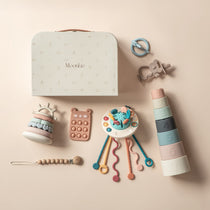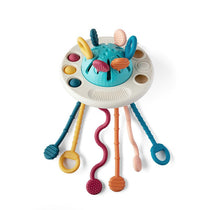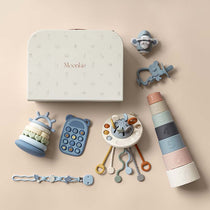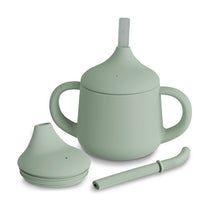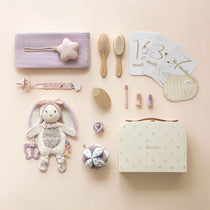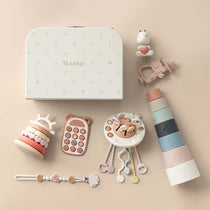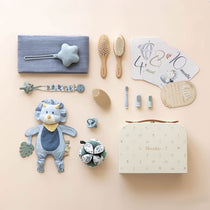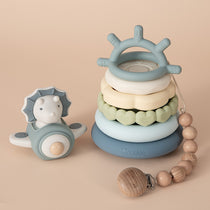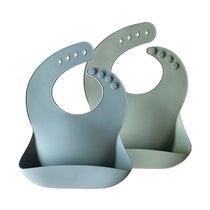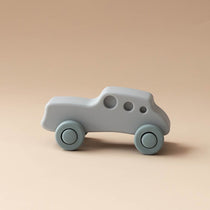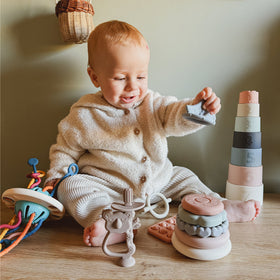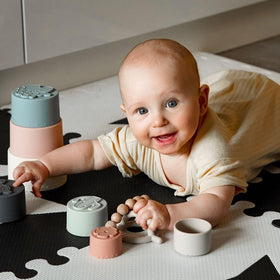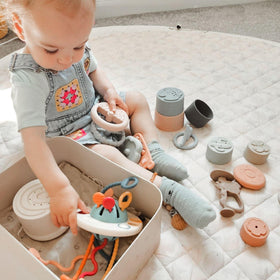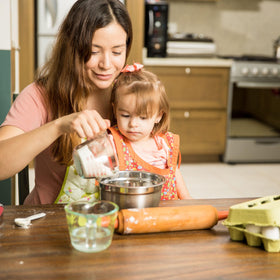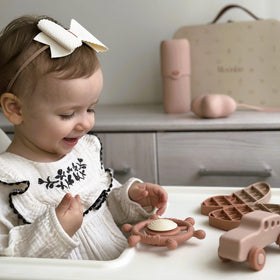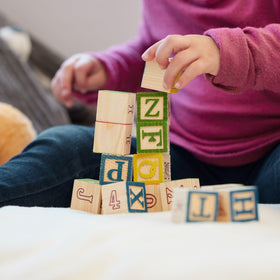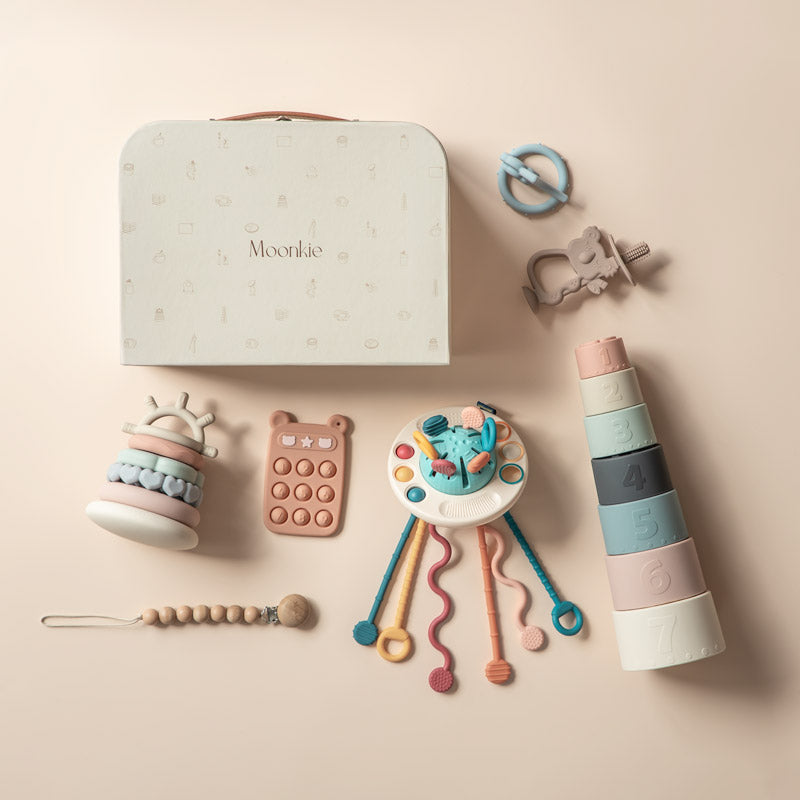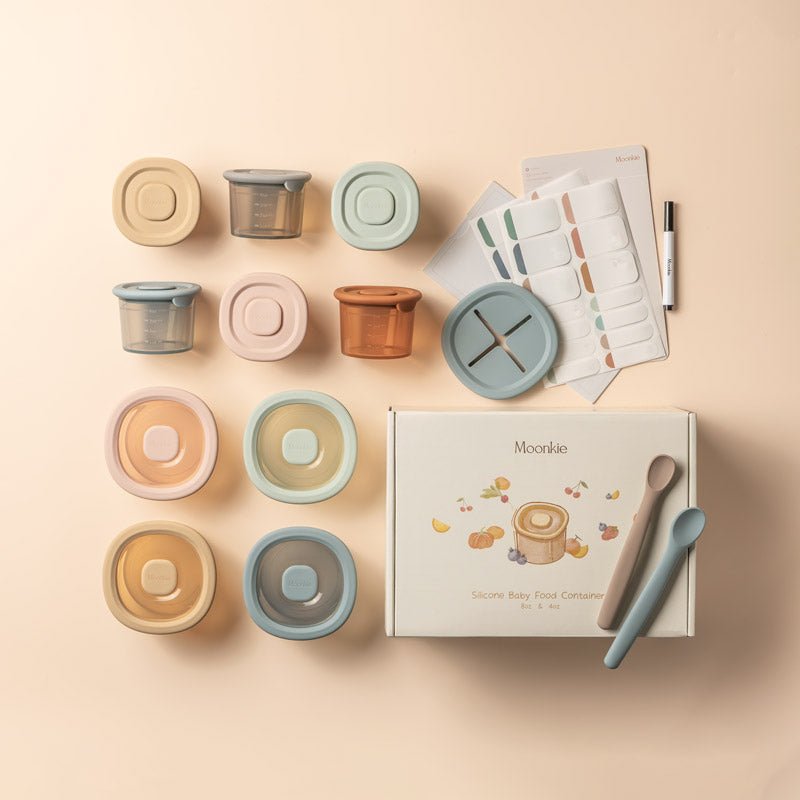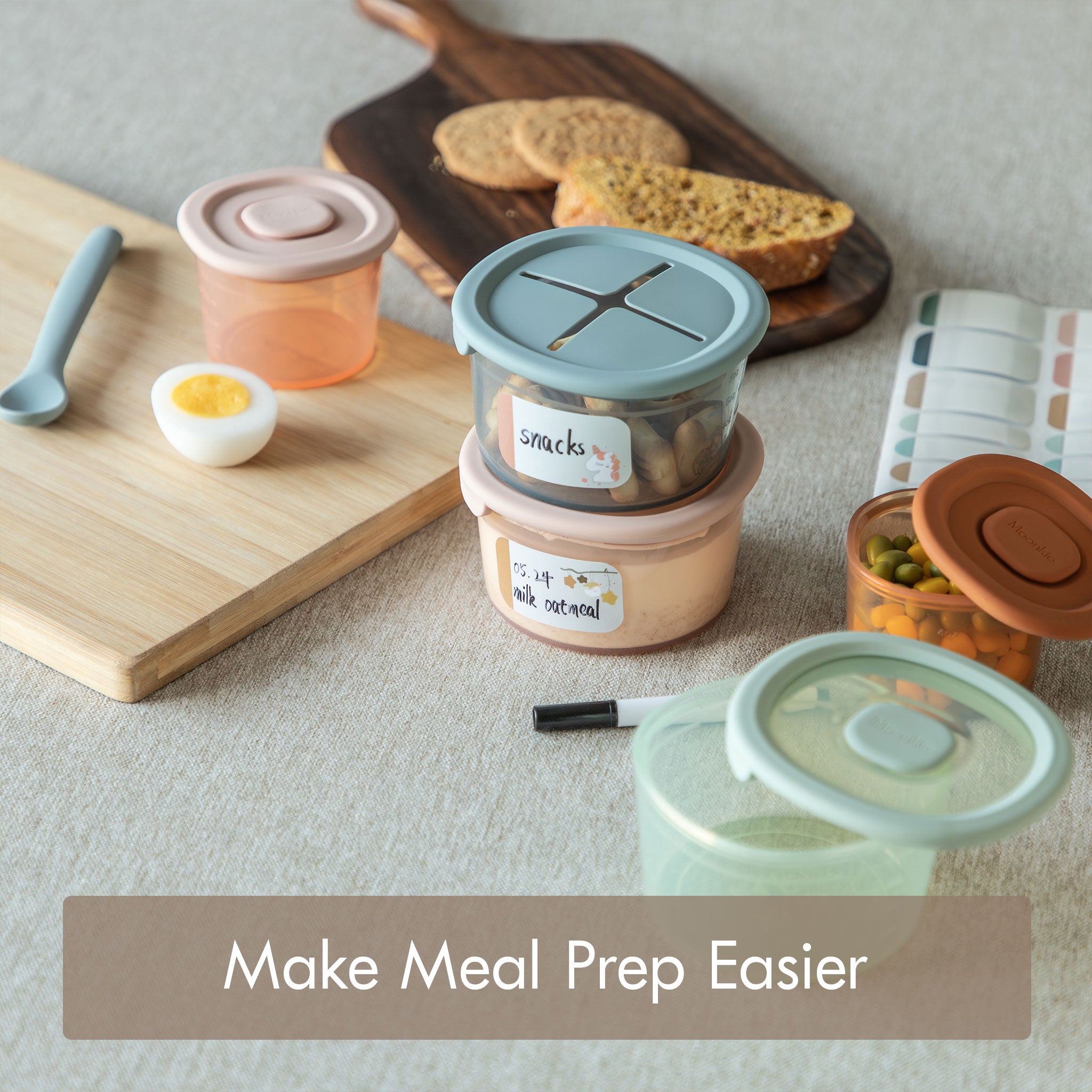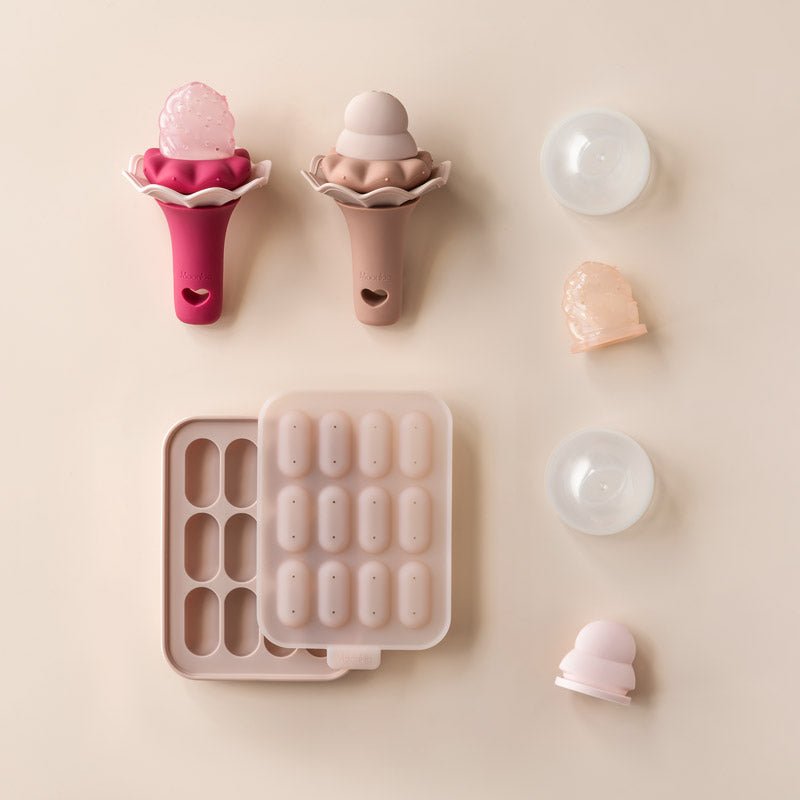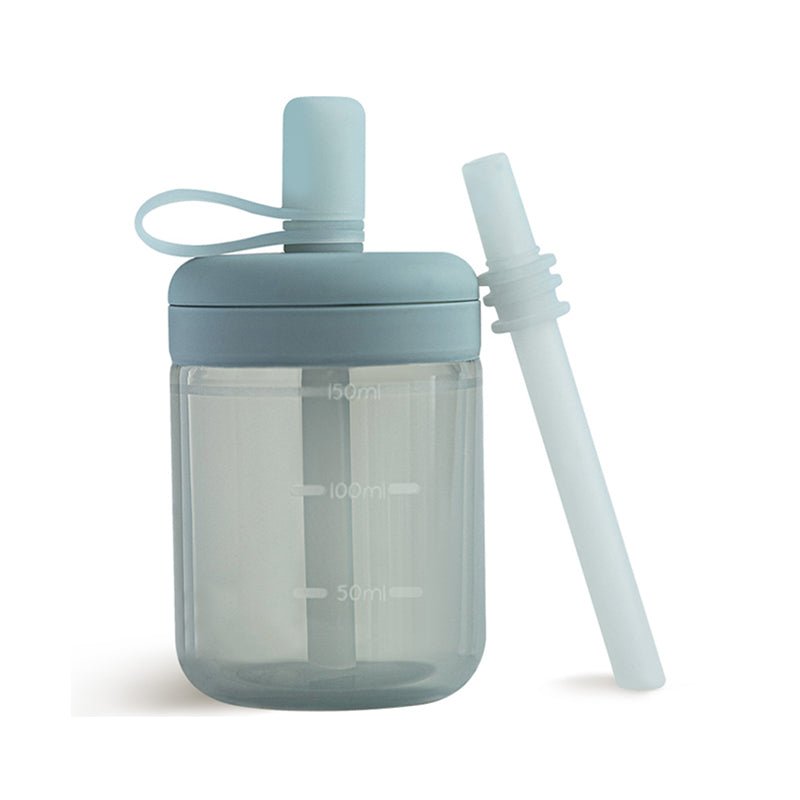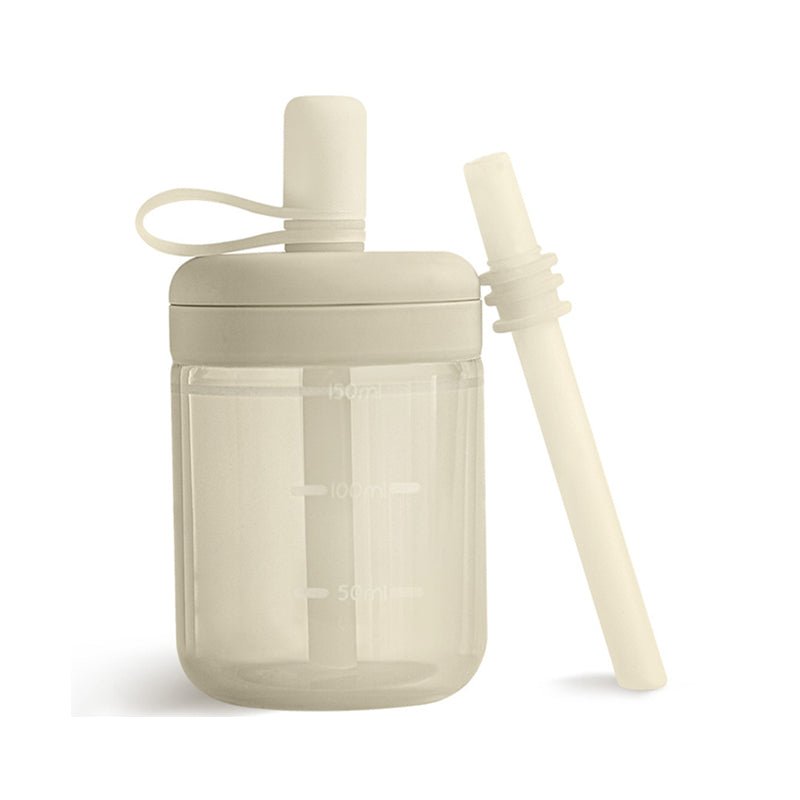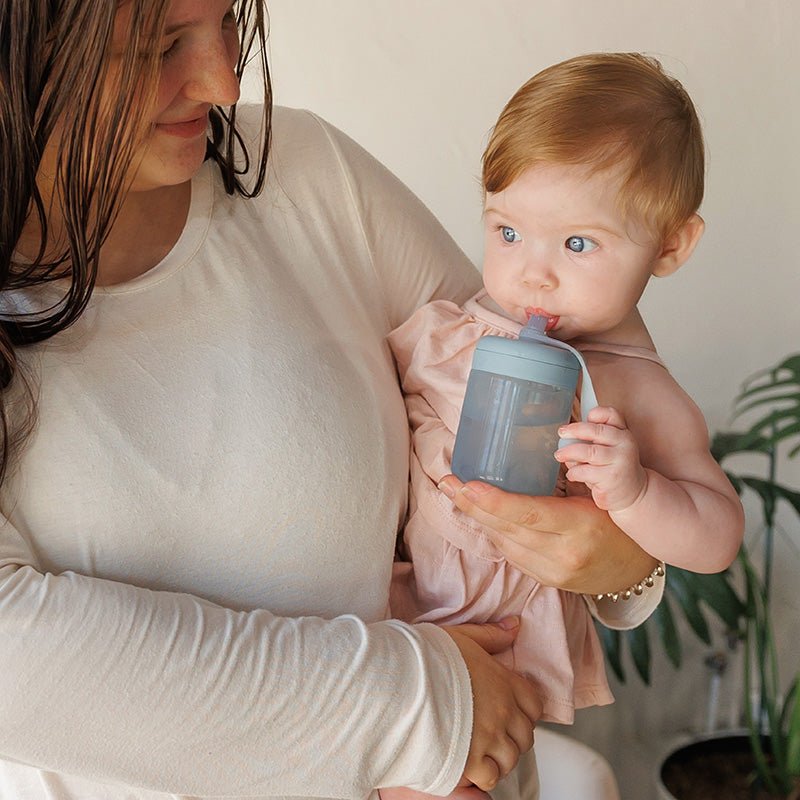Once the newness of having a newborn again wears off (which happens much faster with the second one), you may be struck by the reality of parenting a baby and a toddler simultaneously. How are parents supposed to do this without losing their minds?
Sustainably parenting a baby and a toddler has intense moments that can quickly spiral out of control. However, with patience, planning, and persistence, you can survive the differing schedules, random mishaps, and tantrums with nerves to spare.
Coming from experience in this myself (plus a few more), I know the long nights, unexpected monkey wrenches thrown into carefully laid-out plans, and seemingly little connection with other beings that will treat you as a human. So here are the tips and tricks that saw me through these trying times.
Managing a Newborn and a Toddler
There's no way to predict or prepare for what two versus one feels like at home, especially if your toddler is observant and reserves most of her mischievousness for when you are outnumbered. However, managing a newborn and a toddler becomes a heck of a lot easier when you are two steps ahead.
I'm talking about setting times for snacks, naps, and activities to aim for, preparing activities the night before to fill in the gaps, changing the setting at least twice a day, and having a few extra cards up your sleeve for particularly challenging days.
Let's hash these out.
How Do I Watch Two Kids at the Same Time?
Watching two young kids of different ages at the same time is tricky at first, but you can free yourself a lot of precious effort later by creating a loose schedule, establishing simple rules, and enforcing those rules firmly and patiently.
Your toddler is likely all about pushing the boundaries right now while your infant is growing and observing everything. Setting clear, simple rules for your toddler with logical consequences if broken will help you teach your toddler.
However, your toddler will soon realize that the best time to misbehave is when you are busy with the baby. To avoid this mutiny, stay one step ahead by preparing activity bags or some kind of toddler-only toy that your little one loves and set it out when you are with the baby.
Another thing you can do is give your toddler a baby job. Think of something your toddler can find, bring to you, or tell the baby while you feed, change, or soothe her. You may be surprised at how helpful your toddler wants to be!
I found that stocking a lower cabinet with snacks that my toddler could carry easily was a favorite helper errand. My son would happily bring me and himself a snack while I was feeding the baby, even if he was in the midst of a breakdown.
How Can I Maintain a Schedule with a Toddler and a Newborn?
Believe it or not, maintaining a schedule with a toddler and newborn is possible—not every day, but most days. The key is setting regular points of activities throughout the day and leaving the rest fairly open. Let's call that open space in your schedule "margin."
I quickly learned that strict schedules would not work for my family. We were stretched thin between work, family, volunteering, my husband's studies, helping with tasks at the family farm, and making the day-to-day chores happen.
What was doable was setting activity points throughout the day, like naps, snacks, meals, bedtime routines, and reading time. Come hell or high water, I structured everything around those points. Most importantly, I let myself say "no" to anything that overlapped those points.
In those first months, this is what the activity points looked like:
Time |
Activity |
Typical Length with Preparation and Cleanup |
7 am |
Breakfast |
30 minutes |
9:30 am |
Morning snack |
15 minutes |
10 am |
Baby's nap and toddler time |
1 hour |
12 pm |
Lunch |
30 minutes |
1 pm |
Afternoon nap for everyone |
2.5 hours |
3:30 pm |
Afternoon snack and reading |
20 minutes |
6 pm |
Dinner |
1 hour |
7 pm |
Bedtime routine |
30 minutes |
7:30 pm |
Bedtime |
10 minutes |
This will look different for every family based on how well and when your baby and toddler nap, your work schedule, how quickly you cook, and numerous other factors.
I defaulted to these points because they broke the day up into doable goal points with 1 to 2.5-hour margin spaces for doing other things that fluctuate in daily life.
I used those spaces to prepare baby food ahead of time, go on walks, run to the library, buy groceries, attend doctor's appointments, change the oil, and anything else that popped up.
What Can I Do When Things Don't Go According to Plan?
Try as we might, life happens. You could break a bone, crash the car, attend a funeral, get sick, or anything else and throw off the whole day with ripples of difficulty felt in the coming days and weeks. Though I cannot speak to your situation in the crazy difficulties, I can share tips for recovering after typical interruptions.
One of the most common interruptions is the baby's teething or constipation. Whenever my baby was teething or fussy and couldn't nap, I would simply wear her around and take care of the more active things that day. I would often talk with her, change her view, and change settings from inside to outside or from room to room.
Doing so helped me continue getting things done, helped her with seeing other things, and eventually got her to sleep. So, even if we missed that precious morning nap, we would catch it up in the margin before lunch or keep going to the afternoon nap.
Visits from friends and family were another common interruption to the schedule. For the sake of toddler tempers and my sanity, I would stick to this schedule, and the kids fell in line. Of course, things could be thrown off by 30 minutes or more, but I would just roll with it and let that extra 30 minutes come out of margin time.
What Can I Do with Bedtimes?
Every family has different bedtime expectations. Most parents don't get to spend time together with their kids until the evening or have evening activities that end much later than my 7:30 pm bedtime listed above. Either way, the biggest question is: Should I put both kids down at the same time?

Following a bedtime routine where you bathe both or one at a time, provide a healthy bedtime snack, and do a quiet evening activity together is ideal but not always doable.
I set a bedtime routine I could handle on my own within 30 minutes, but I also had a "late night" routine for those days when we got home late. In my experience, toddlers have more trouble with the quick routine but are typically so tired that they quickly fall asleep afterward.
So, you can plan for a short late-night routine but know that it will require extra patience on your end. If your little ones share the same room, I've got several ideas you can try to make it smoother in this article: Bedtime Tips for Young Siblings Close in Age Sharing a Room.
What Are Some Age-appropriate Activities that Entertain a Toddler and a Baby?
Now, let's discuss activities for margin time at home. The trick is keeping them age-appropriate for your toddler and safe for your baby to watch or join in.
In an effort to keep things simpler, I divided these into activities your baby can watch your toddler do and activities you can do together.
Baby Can Watch:
Finger painting
Kneading bread
Playdough
Sensory bins with little pieces
Coloring
Climbing
Playground
Cleaning
Cooking
Simple crafts
Brushing a pet
Building a fort
Playing a sport
Baby Can Participate:
Baby sensory bin
Large lego blocks
Wooden block set
Playing in water (with you)
Reading
Tummy time
Going for a walk
Visiting the library
Looking for items you name
Hide and seek
Dancing to music
Picking flowers (with you)
Playing outside
You can find many more ideas, ranging from simple to complex, online. Connecting with other families will also bring plenty of ideas and play dates to mix things up in your daily life.
How Can I Keep Up with the Chores with a Baby and a Toddler?
Chores come in neverending waves of monotony, especially with a toddler quickly undoing whatever you just did and a baby keeping you sleep-deprived. There are many free tips online to help you keep up with chores without going nuts or feeling like you are always cleaning.
Here are a few that worked for me:
Make your bed when you wake up; it's a small win in a short time.
Do the dishes after each meal so you don't make an overwhelming mess.
Clean the kitchen as you cook to make cleanup afterward easier.
Don't do all the chores in one day--do dusting one day, bathrooms another, and floors another day.
Laundry is a daily thing for a while--do small batches that you can put away quickly.
Set a timer for general chores (not kitchen) each day, and don't go over it (I did 20 minutes).
Involve your toddler in cleanup time (songs, rewards, praise).
Use bins where you can to make cleanup easier.
Clear surfaces (tables, desks, countertops, shelves) of clutter.
Throw out clutter regularly--you probably won't get around to needing it.
Be okay with your house looking like someone lives there--perfection is exhausting.
No one can keep up with the chores 100% of the time, so give yourself some slack! If you feel like you fill your free time up with chores most of the time, try setting a timer for cleanup outside of the kitchen and letting yourself play with your kids or rest afterward. Chores are not as important as your children.
6 Tips for Making Time for Yourself with a Toddler and a Baby
Parenting young children will repeatedly bring you to the brink of exhaustion and your wit's end. However, you can (and probably should) make time to prevent burnout.
These won't work for everyone or every situation, but perhaps you can try one or two to wrangle up some free time for rest.
1. Ask for Help
Reach out to trusted family members or friends who have offered to babysit or help with the kids, even if it's just for a short while.
If you don't have anyone nearby, look for a community nursery or short-term childcare that offers to watch your kids while you do something restful or enjoyable.
For example, many churches offer childcare during service hours or a couple of weekday evenings. Likewise, some gyms provide childcare services while you work out. Ensure the space is clean, age-appropriate, and child-safe and led by at least two adults who have cleared background checks.
2. Coordinate Nap Times
Coordinating nap times is a serious time saver, but it is easier said than done. Synchronizing your toddler and baby's afternoon nap is the best and most consistent way to provide a moment of peace every day.
I managed this by drawing the curtains around the house, turning on a box fan, and rocking the baby to sleep just after 1 pm every day. My toddler was allowed to play quietly or read books but conked out within 20 minutes most days.
Even now that my children are older, I still require an hour-long quiet time after lunch cleanup because it resets everyone's attitudes and prepares everyone for the afternoon's activities.
3. Make Bedtime Earlier for Kids
Some parents feel they have no time to themselves because their children stay up until 10 or 11 pm. If that is your family culture, by all means, go for it. That's not how my family rolls because we are early birds.
So, I worked bedtime from the original 8:45 pm back to 7:30 pm when my second was born. For one, I knew my first two would share a room for a while, so I needed them to be on the same schedule. For another, my toddler was fussy and upset after dinner anyway, so I knew he needed more sleep.
After a rough first month, everything smoothed out and worked out wonderfully so that my husband and I had a little time together before feeding the baby again and passing out for the night. Granted, this won't work for everyone, but it is doable for the early birds out there.
4. Utilize Screen Time Strategically
Screen time ought to be limited--ideally, babies younger than 18 months will not have any screen time at all (source). However, you may need to employ a few minutes of screen time now and then to rest in a pinch.
For example, shutting your eyes during your baby's morning nap time to manage a headache is not a bad time to put on 20 or 30 minutes of a toddler TV show. Other times, a short screen time is helpful, including being sick, mopping the floors, handling a serious phone call, or cleaning up a big mess you don't want your toddler running through.
At any rate, toddlers shouldn't watch more than an hour of TV in a day, so try to limit screen time as much as possible (source). It is an incredibly tempting crutch.
5. Encourage Independent Play
Yes, independent play is possible! Your toddler will soon play independently often and even involve his sibling as the baby grows in ability and communication skills.
You can encourage independent play by preparing safe play spaces or activity boxes with toys your toddler hasn't seen in a while. Are you struggling with tantrums instead of enjoying independent play? Read The Ultimate Guide to Toddler Tantrums: How to Handle Them Like a Pro for ideas.
6. Take Turns Providing Date Night
Another helpful way to gain free time for yourself is to trade date nights or free time with other parents. Take on all the kids for a few hours every week or month and trade-off with the other parent.
Planning something fun with all the kids is a treat on some days and challenging to manage on other days, but it's worth it for the break! Moreover, you're helping another tired parent out.
In a Nutshell
These months with a baby and a toddler are intense and fleeting. One day, you will look back and actually miss these days (crazy, right?). There's no one right way or magical method to survive and thrive during this time, but some of the tips and tricks above may help you weather the rough days a bit more sustainably. Hang in there!

